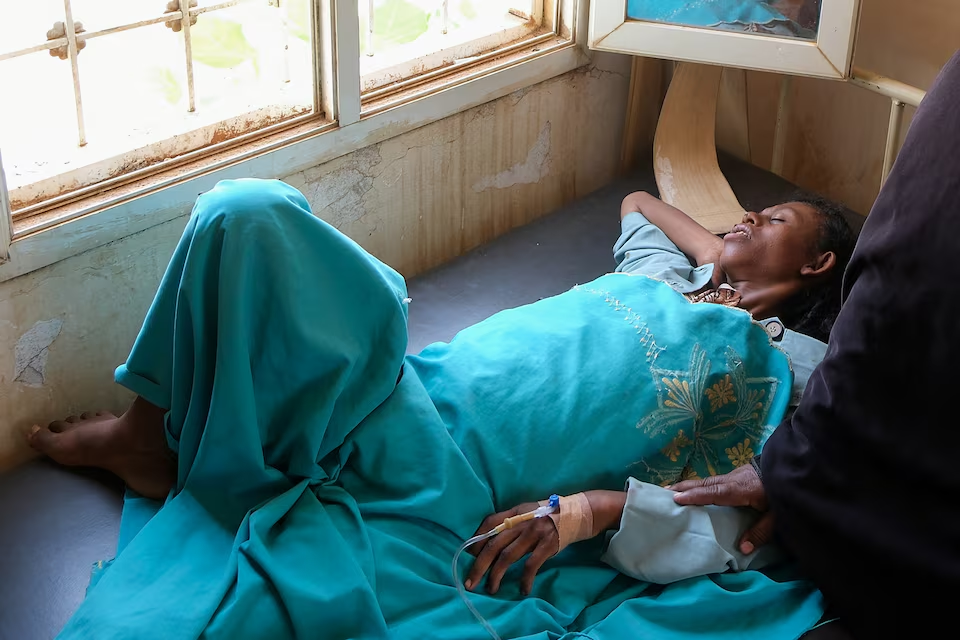Sudan’s Minister of Health, Haitham Mohamed Ibrahim, announced that tens of thousands of Sudanese have been infected with dengue fever and other diseases, as seasonal rains strain already fragile infrastructure and conflict-damaged hospitals.
The unusual surge in diseases such as dengue, cholera, and malaria this year highlights the hidden costs of Sudan’s war, now dragging into its 30th month, as millions of displaced people return home while others continue to flee.
Exhausted Patients
The conflict between the Sudanese army and the paramilitary Rapid Support Forces has triggered the world’s worst humanitarian crisis and widespread famine. Despite the army regaining control of the capital, Khartoum, and other parts of the country, there are no signs of the fighting easing.
At Omdurman Hospital, exhausted patients lie under mosquito nets in overcrowded wards as they receive treatment for dengue fever.
The Ministry of Health reported more than 2,000 confirmed dengue cases nationwide last week, most of them in Khartoum. However, Ibrahim told Reuters that the actual numbers are likely far higher.
“Eighty percent of infections are mild and do not require hospitalization. Therefore, we estimate that tens of thousands have been infected across Sudan in recent weeks,” he said.
The mosquito that transmits the disease breeds in stagnant water, including inside homes. Sudan’s rainy season has left pools of standing water across the country, while residents store water at home after fighting in the capital destroyed electricity and running water systems.
Public Complaints
Salah El-Din Al-Tayeb, a 65-year-old trader in Omdurman, said he and two family members contracted dengue. Expressing his frustration, he said: “The government is doing nothing. Rainwater stagnates in the streets, garbage is everywhere, and the number of mosquitoes keeps increasing. I recovered from dengue a few days ago, but now two of my family members are infected. Painkillers are unavailable, sold only on the black market. Their official price is 3,000 pounds, but they’re being sold for 15,000—and people simply cannot afford them.”
Mosquito Breeding Grounds
The Minister of Health explained that insecticide spraying systems have been damaged, and that more than two years of war have had a direct impact on the environment and public health—leading to uncollected waste, destroyed water sources, and a surge in mosquito breeding.
While vaccination campaigns and water treatment have helped somewhat contain cholera in the capital, the Darfur region has seen peak outbreaks. The World Health Organization (WHO) said on Tuesday that 12,739 cholera cases had been recorded over the past four months.
Around 61% of those cases are concentrated in the town of Tawila, where hundreds of thousands of people fled after fighting erupted in El Fasher and its surroundings, now an epicenter of violence. WHO said vaccination efforts are also underway there.
The health minister noted that declining global aid has hampered Sudan’s ability to combat these diseases, explaining that the cost of addressing several simultaneous epidemics amounts to about $39 million.
According to UN data, Sudan currently receives less than one-third of the health sector funding it needs, with services heavily dependent on donor support.
